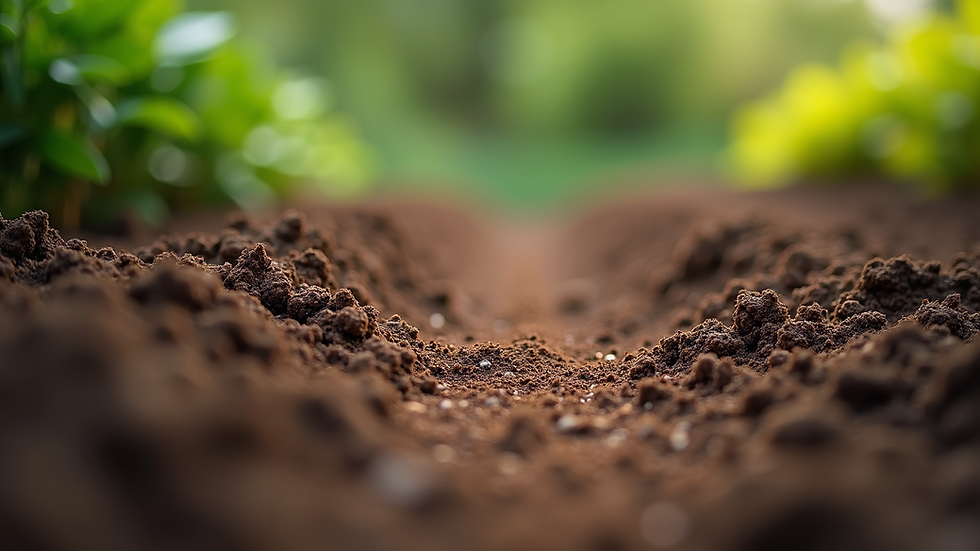Effective Strategies for Managing Plant Nutrition
- The Home & Garden Store

- Nov 14, 2025
- 4 min read
Proper plant nutrition is essential for vibrant, healthy plants that thrive in any environment. Understanding how to manage plant nutrition effectively can lead to stronger roots, lush foliage, and abundant blooms or fruits. This guide explores practical strategies to help you optimize nutrient uptake and maintain balanced soil conditions for your plants in the Treasure valley.
How to Manage Plant Nutrition for Optimal Growth
Managing plant nutrition involves providing the right nutrients in the right amounts at the right time. Plants require macronutrients like nitrogen, phosphorus, and potassium, as well as micronutrients such as iron, zinc, and manganese. Here are some key steps to managing plant nutrition effectively:
Soil Testing: Begin with a soil test to determine nutrient levels and pH. This helps identify deficiencies or excesses.
Balanced Fertilization: Use fertilizers tailored to our alkaline Idaho soil. Avoid over-fertilizing, which can harm plants and the environment.
Organic Matter Addition: Incorporate compost or well-rotted manure to improve soil structure and nutrient availability.
Water Management: Proper watering ensures nutrients dissolve and reach plant roots efficiently.
Mulching: Mulch helps retain moisture and slowly releases nutrients as it decomposes.
By following these steps, you can create an environment where plants absorb nutrients efficiently, leading to healthier growth and better yields. The Home & Garden Store has the fertilizers and chemicals that will improve your soil.

Understanding Nutrient Deficiencies and How to Address Them
Plants show specific symptoms when they lack certain nutrients. Recognizing these signs early allows for timely intervention:
Nitrogen Deficiency: Yellowing of older leaves and stunted growth.
Phosphorus Deficiency: Dark green or purplish leaves and poor root development.
Potassium Deficiency: Browning leaf edges and weak stems.
Iron Deficiency: Yellowing between leaf veins, especially in young leaves.
To correct deficiencies:
Apply targeted fertilizers such as Ferti-lome 'Greenmaker' or Ferti-lome 'Classic'.
Adjust our alkaline soil pH, this will help in improving nutrient availability. The Home & Garden Store recommends applying Ferti-lome 'Iron Plus'.
Use slow-release fertilizers such as Ferti-lome 'Classic' to provide steady nutrition.
Incorporate organic amendments to enhance soil health. Natural Guard has organic products to help you improve your soil.
Regular monitoring and adjusting nutrient supply based on plant needs is crucial for sustained growth.

What Does a Plant Nutritionist Do?
A plant nutritionist specializes in understanding how plants absorb and utilize nutrients. Their role includes:
Soil and Tissue Analysis: Testing soil and plant tissues to diagnose nutrient status.
Nutrient Management Plans: Designing fertilization schedules tailored to specific crops and soil conditions.
Research and Development: Studying new fertilizers and soil amendments to improve plant health.
Problem Solving: Identifying nutrient-related issues and recommending corrective actions.
Education: Advising gardeners, and landscapers on the best practices for nutrient management.
Plant nutritionists play a vital role in maximizing crop yields and maintaining sustainable agricultural practices.

Practical Tips for Enhancing Nutrient Uptake in Plants
To boost nutrient absorption, consider these practical tips:
Use Root Stimulators: Products like Ferti-lome 'Root Stimulator' containing IBDU will encourage root growth and improve nutrient uptake.
Maintain Proper Soil pH: Most plants prefer a pH between 5.8 and 6.3. Adjust soil acidity as needed. We recommend testing your soil at least biannually.
Avoid Overwatering: Excess water can leach nutrients away from roots.
Rotate Crops: Crop rotation prevents nutrient depletion and reduces soil-borne diseases. This is important with crops such as tomatoes, peppers, and many other vegetables.
Implementing these strategies helps plants access nutrients more efficiently, leading to stronger and more resilient growth.
Monitoring and Adjusting Your Plant Nutrition Strategy
Effective plant nutrition management is an ongoing process. Regularly monitor plant health and soil conditions to make informed adjustments:
Visual Inspections: Look for changes in leaf color, size, and texture.
Soil Testing: Conduct tests annually or biannually to track nutrient levels.
Record Keeping: Maintain logs of fertilization schedules, plant responses, and environmental conditions.
Adjust Fertilizer Types and Rates: Based on observations and test results, modify your nutrient applications as needed.
Stay Informed: Keep up with the latest research and recommendations in plant nutrition.
By staying proactive, you can prevent nutrient imbalances and ensure that plants continue to flourish.

Sustaining Plant Health Through Balanced Nutrition
Managing plant nutrition effectively is the key to sustaining plant health and productivity. By understanding nutrient requirements, recognizing deficiency symptoms, and applying targeted solutions, you can create a thriving garden. Remember to use tools like soil tests and root stimulators, and maintain good cultural practices such as proper watering and mulching. With consistent care and attention, your plants will reward you with robust growth and abundant yields.
If you have a plant that's not performing like you think it should, feel free to stop by our garden center, we're here to help you with all your gardening questions. We suggest you provide pictures and if possible, bring in a sample of the plant in question.
Charlie Hartman - Idaho Certified Nurseryman
The Home & Garden Store - Boise, Idaho
Phone: 208.917.4820




Comments